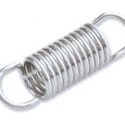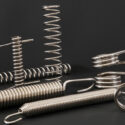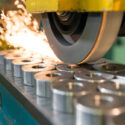In the manufacture of custom springs for an application, engineers must first accurately calculate a helical spring formula to achieve the ideal spring design. Formulas and equations vary, too, for each type of helical spring. For example, a lot to do with calculating the formula for a helical spring relates as much to the type… Read more »
About Helical Springs & Calculating the Formula











